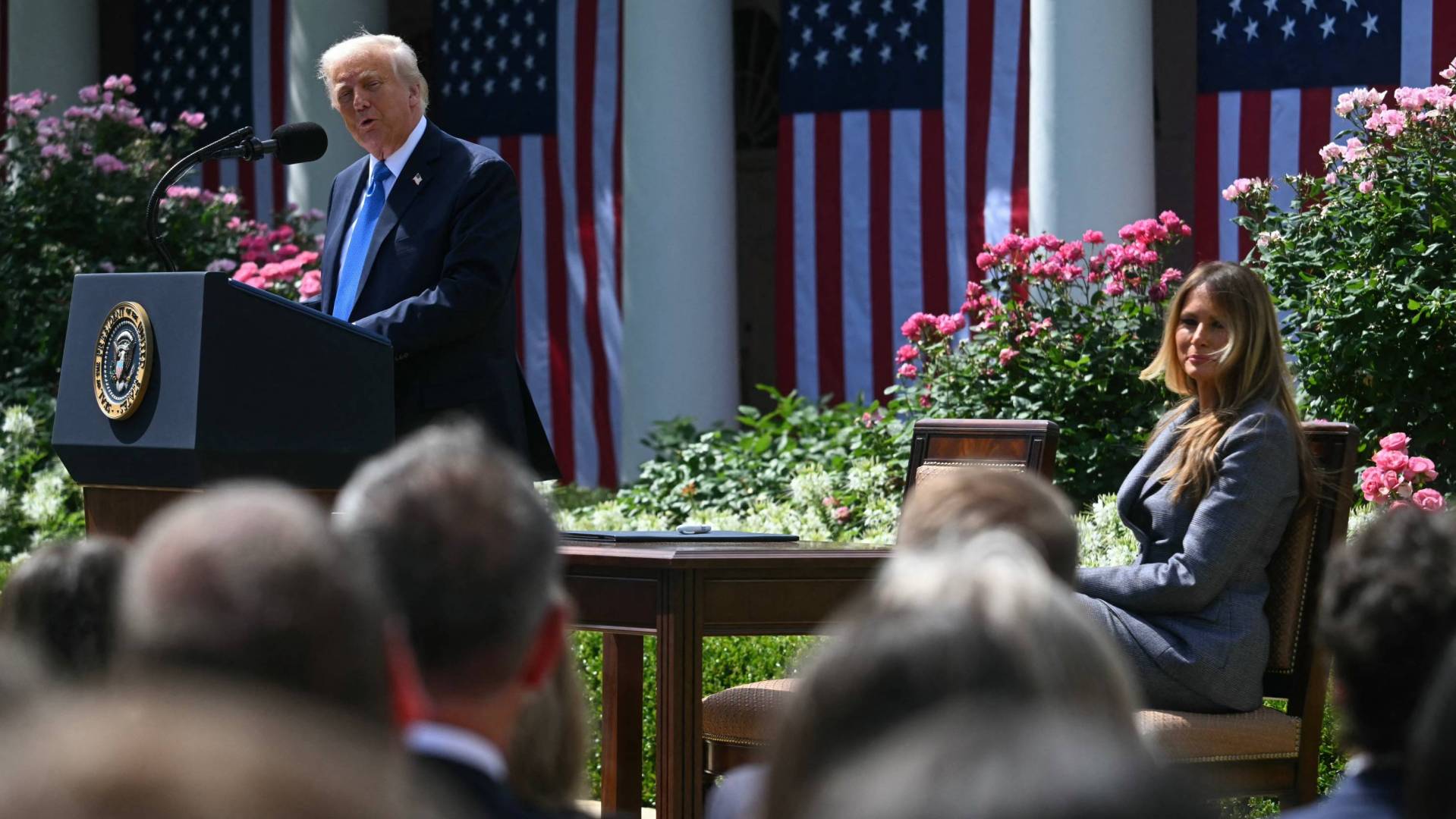Publishing or distributing sexually explicit material of a person without their consent is now a federal crime, and social media platforms and other websites must remove such images within 48 hours of notification.
That’s the gist of the bipartisan Take It Down Act President Donald Trump signed into law Monday, which First Lady and former international model Melania Trump lauded as a major point of her Be Best Initiative and which sex abuse watchdog groups applauded.
The law criminalizes nonconsensual images including AI-generated content commonly called “deepfake pornography,” as well as video images and photography either created without the subject’s consent or distributed without such consent.
The Danbury Institute, a conservative Christian public policy group, began endorsing the Take It Down Act last year, when the legislation was introduced by Senator Ted Cruz. The institute called its bipartisan support “a welcome display of unity in the protection of innocent citizens and the promotion of public decency,” and its chairman Scott Colter celebrated the new law as an example of the Trump administration working alongside Christians.
Leaders from the Danbury Institute, the Heritage Foundation, and the Ethics and Public Policy Center attended Monday’s signing at the White House Rose Garden.
In a statement released on social media, the Southern Baptist Ethics & Religious Liberty Commission said Southern Baptists applaud Trump’s signing the bill.
“Because pornography is a distortion of God’s gift of sexuality, a violent assault on the imago Dei, and a corrosive plague upon individuals, families, churches, and society, we will continue to advocate for policies that keep this material from our public spaces,” the statement said.
Image-based sexual abuse affects a growing number of people, watchdog groups say, with the pornography industry fueling the abuse. A study released in March found that 1 in 8 young people personally knew someone under the age of 18 targeted by deepfake porn or knew someone who had used deepfake technology against another minor.
The National Center on Sexual Exploitation (NCOSE) and the Parents Television and Media Council, two groups invited to the White House lawn to witness the signing, applauded the new law inspired by Elliston Berry, a survivor of deepfake image-based sexual abuse committed when she was 14.
“It would be hard to overestimate the incredible impact this new law will have,” NCOSE said in a press release, emphasizing that with the explosion of AI tools, “anyone can be victimized through IBSA within seconds.”
“The notice and takedown provision established by the Take it Down Act is similar to copyright law,” NCOSE said, “which means we already know it works. Image-based sexual abuse will now be removed as quickly as copyrighted material, like Disney movies, are removed from YouTube.”
Parents Television and Media Council Vice President Melissa Henson said the new law provides relief for survivors, including children.
“Of all the online threats to children, deepfake pornography might be the most insidious, because anyone—even children and teens who aren’t online or don’t use social media—can fall victim to it,” Henson said in a press statement. “To witness the signing of the bill into law, along with families whose children have been victimized by deepfake pornography or sextortion, was bittersweet, but will serve as a powerful reminder of the difference people can make when they advocate for solutions that will protect future generations.”
In an uncommon show of bipartisan support, only two members of Congress voted against the Take it Down Act when it passed in April, Republican representatives Thomas Massie of Kentucky, who has called the legislation “a slippery slope, ripe for abuse, with unintended consequences;” and Eric Burlison of Missouri, who has said it is redundant and federalizes crimes addressed in state law. The act passed the US Senate unanimously.
Penalties for violating the Take it Down Act include prison sentences of up to three years for crimes committed against individuals under the age of 18, and up to two years for crimes committed against adults, with concurrent financial fines, the act stipulates.
Trump signed the act on the heels of NCOSE’s May 13 release of the report “Not a Fantasy: How the Pornography Industry Exploits Image-Based Sexual Abuse in Real Life,” a detailed look at pornography’s global impact on image-based sexual abuse.
NCOSE defined image-based sexual abuse as “a violation of persons that includes the theft, creation, and distribution of sexually explicit material without the meaningful consent of the persons depicted, or the manipulation of nonexplicit material for the purpose of making it pornographic.”
NCOSE includes in the definition nonconsensual distribution of sexually explicit images or videos, recorded sexual violence, video voyeurism, and nonconsensual creation or distribution of AI-generated forged pornography.
First Lady Melania Trump said the new law reflected her efforts to create safer spaces for youth online. Now that the law has been signed, she said, “we look to the Federal Trade Commission and the private sector to do their part” to enforce it.













